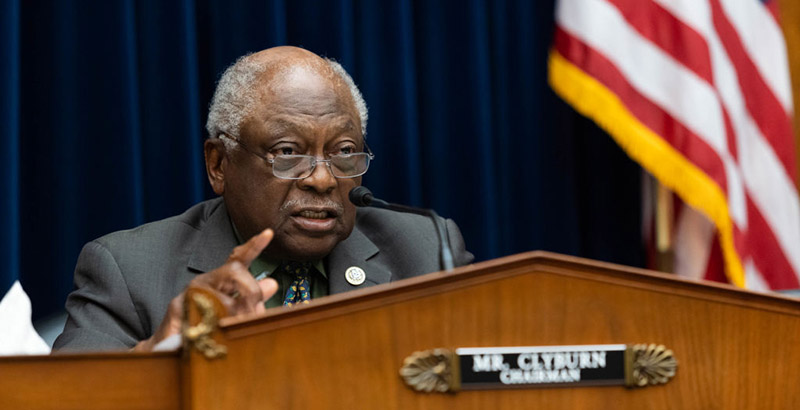Congress Wants FDA to Explain Reported Delay in Reviewing Moderna Toddler Vaccine

Get stories like this delivered straight to your inbox. Sign up for The 74 Newsletter
Updated, May 2
The Food and Drug Administration announced April 29 that it will reserve the dates June 8, 21 and 22 for its vaccine advisory committee to review the emergency use authorization requests of Moderna’s and Pfizer-BioNTech’s coronavirus shots for toddlers. While the dates remain subject to change, they provide an indication of when doses may be available to those under 5, as the FDA typically follows the recommendation of the committee in the weeks following its meeting.
Members of Congress sent a letter to the U.S. Food and Drug Administration Monday asking whether the agency intended to delay reviewing Moderna’s coronavirus vaccine for children 5 years old and younger and for “the scientific basis and any other rationale” for such an action.
The move comes after White House officials told Politico last week that young kids, the last age group not yet eligible for coronavirus vaccines, will likely have to wait until the summer for immunizations — a longer timeline than previously expected.
Although Moderna completed the trial for its toddler vaccine in late March and submitted a request for emergency use authorization on Thursday, Anthony Fauci said that the FDA is considering reviewing the pharmaceutical company’s application at the same time as Pfizer-BioNTech’s, which has not yet been submitted.
“[The] two products … are similar but not identical, particularly with regard to the dose. And what the FDA wants to do is to get it so that we don’t confuse people to say, ‘this is the dose. This is the dose regimen for children within that age group of 6 months to 5 years,'” President Biden’s chief medical advisor told CNN on Thursday.
“Such a decision could delay the potential authorization and administration of the Moderna vaccine by several weeks,” points out Rep. James Clyburn, chair of the House Subcommittee on the Coronavirus Crisis, in its letter to the FDA. The committee asked for a staff briefing on the subject by May 9.
In early February, Pfizer-BioNTech submitted data on a two-dose vaccine series for children under 5 to the FDA, but in a highly unusual move withdrew their application just 10 days later. The two shots, which are 10 times less potent than the companies’ adult doses, were safe for all age groups, but did not provide enough protection against the Omicron variant for 3- and 4-year-olds. Pfizer-BioNTech now plans to request that the FDA authorize a three-dose regimen for children under 5, the companies have said.
The Moderna series currently submitted for review includes two shots that are each one-quarter the dose adults received. Trial data showed shots to be 44% and 38% effective in preventing illness among children 6 months to 2 years old and 2 years to under 6 years old, respectively.
But despite the relatively low efficacy, many parents of young children are anxious for a base level of protection for their kids, especially as mask mandates and social distancing requirements continue to fall across the country.
For some, the idea that the FDA would delay the Moderna shots on parents’ behalf — ostensibly to avoid confusion — struck the wrong chord.
“If I sign a waiver saying ‘I don’t find this confusing at all,” can I go ahead and get the vaccine for my four-year-old?” parent and New York Times writer Whet Moser remarked on Twitter.
Meanwhile, a Tuesday report from the Centers for Disease Control and Prevention revealed that more than half of Americans have been infected by the coronavirus, including 3 in 4 young people. Rates of prior infection nearly doubled over the course of the Omicron surge, the agency found.
Jennifer Shu, an Atlanta-based pediatrician, agrees that if doses are ready for emergency use authorization, Washington should not delay the rollout. After all, vaccines from separate companies were approved at different times for other age groups, she pointed out.
“If it’s ready to go, if the science has proven that the vaccine is safe and effective, then why not let the parents educate themselves on it?” she told The 74, adding that health professionals like herself can help families make an informed choice.
Parents of kids under 5 may feel they’re being “thrown under the bus” as pandemic precautions dwindle and the BA.2 Omicron subvariant threatens, said Shu.
But despite thousands of families eager to vaccinate their toddlers, still more are likely to pass on the opportunity when it becomes available.
Immunization rates remain relatively low for older kids and teens with 28% of 5- to 11-year-olds and 58% of 12- to 17-years-old fully vaccinated as of April 20, according to the American Academy of Pediatrics. New immunizations have slowed nearly to a halt, with vaccine coverage having increased only 1 percentage point in each age group since mid-March.
Even as vaccination rates are flatlining, Pfizer-BioNTech is planning to seek authorization for a third booster shot for kids 5- to 11-years old after trials found that it offers added protection against the Omicron variant.
Get stories like these delivered straight to your inbox. Sign up for The 74 Newsletter

;)
